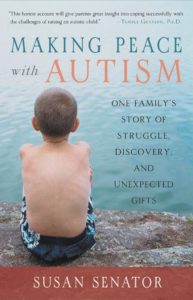Every family has different reasons why they choose to homeschool. Many do it for moral/ethical/religious reasons. Some do it simply because they love to spend as much time as possible with their children and want to be responsible for their education as well. Some do it out of necessity for the child. Our family’s homeschool story, of course, falls into that last category.
About seven years ago, I attended a special needs parenting workshop on IEP preparedness and advocacy guidelines. The moderator went around the room prompting all the participants to introduce themselves and mention their child’s educational status. I vividly remember a woman seated by herself who explained in a tired but accepting voice that due to mainstreaming problems, she would need to homeschool her twelve-year-old son who had Tourette Syndrome. At the time, I thought I could interpret the exhaustion on her face, the frustration, the resignation. I thought, because I was a single parent with an autistic six-year-old, that I knew how she felt. I remember at that moment being thankful because Nigel showed such great potential that I wouldn’t need to consider homeschooling in the future. On some level, I didn’t even want to consider it because I thought it was something I wouldn’t be able to do. But now when I remember that woman’s face and her voice, I comprehend on a deeper level what she conveyed at the meeting that night, seven years ago.
This is what I need to do for my son. I don’t know how yet, but I will do it. I will make it work.
I know this now because this is how I felt five months ago. Six months ago, as the school year was about to begin, Nigel asked me several times if I would homeschool him. At the time I had not even considered it an option, mostly because, as a single parent, I had to work. How could I homeschool him? I couldn’t be the stay-at-home parent: I was the only parent!
I will write in future posts about all the bullying and social problems Nigel experienced that made me decide to find a way to homeschool him. Within weeks of school starting, his already fragile status in a low-support mainstreaming situation had deteriorated to the point where I had begun to seriously think about homeschooling him. I started researching homeschooling websites in general and looked at our state’s requirements for specific information. But I had no idea how to swing it financially.
Opportunity knocks. I had been working at my job as account manager for an order fulfillment company for almost ten years. My boss walked up to my desk a few weeks after I decided I would need to homeschool my son, and she said that one of our clients, a music label, was looking for someone to handle the royalty calculations for their 45 artists. It was tedious accounting work, but it could be done from home, and did I know anyone who might be interested? My spine tingled; I hadn’t told her yet that I needed to find a way to homeschool Nigel.
I took the job. And after several weeks of hiring and training my replacement at the office, I begain homeschooling my son. I am so glad he asked me to do this. It is a dream come true for both of us.


